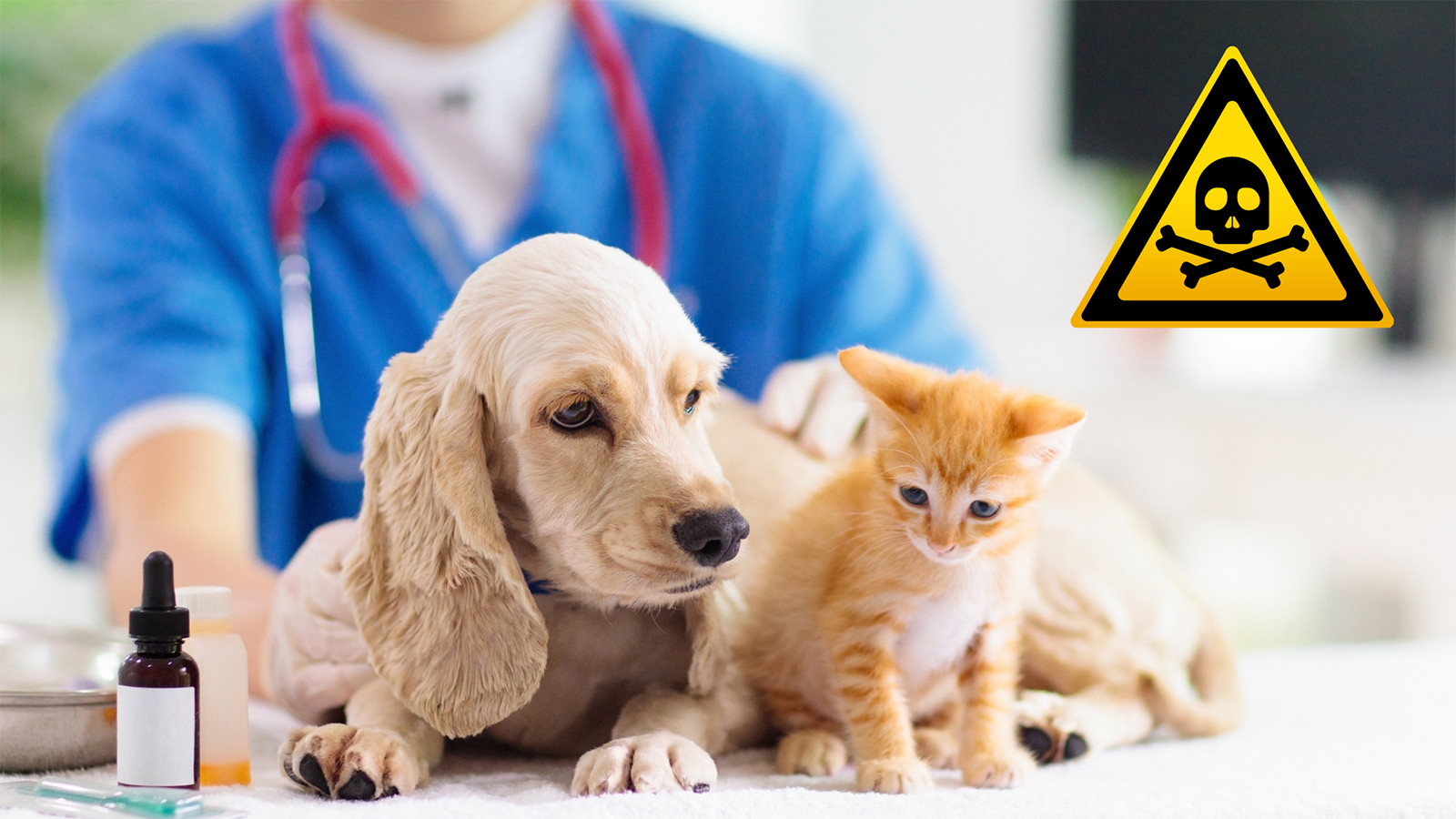To us, the LeeVet team, one of the most important subjects that we need to educate owners are poisoning and toxicities for your pets.
There are many things, plants and food materials around us that we use daily can be poisonous and cause fatality to the pets we love.
An easier to understand what poison and toxin from their definition is that I found from sciencelearn.org.nz is that Poisons are substances that cause harm to organisms when sufficient quantities are absorbed, inhaled or ingested whereby A toxin is a poisonous substance produced within living cells or organisms.
Each year, many cases of poisoning in pets caused by household substances, human food and medications that we take on a daily basis were sent to the veterinarian in Malaysia, but we have never really tabulated a total number. We are here to remind you, that something safe for people doesn’t mean it won’t hurt your beloved pets.
Depending on how a particular substance affects your dog’s body and how much was ingested or inhaled, pet poisoning symptoms can include mild symptoms such as vomiting and diarrhea (gastrointestinal signs), to more severe cases that come with twitching, jerking, seizure (neurological signs), difficulty in breathing, asthma, respiratory distress (respiratory signs) to coma and even death.
Here are just some examples of common toxins/poisons that we can find around our homes,
1. Medication (certain human/over-the-counter medications)
-
- Antiinflammatory – such as acetaminophen (Panadol), ibuprofen, Mefenamic acid. – causes severe kidney failure, gastritis, stomach and intestinal ulcers.
- Blood pressure medications
- Antidepressant – cause a rise in blood pressure, heart rate and sometimes seizures.
2. Human food
-
- Chocolate – liver failure, seizure
- Grapes and raisins – kidney failure, vomiting
- Avocado – vomiting and diarrhea
- Onions – cause hemoglobin (oxygen-carrying red blood cells to Methemoglobin – red blood cells that cannot carry oxygen)
- Macadamia nuts – vomiting, lethargy, weakness
- Xylitol (sugar replacer) – weakness and seizures, liver failure
- Alcohol – difficulty in breathing, vomiting, in severe cases death
- Coffee/caffeine – weakness, seizure
3. Pesticides
-
- vomiting, seizure, death
4. Insecticides
-
- bug spray and ant baits – vomiting, diarrhea, seizure, death.
5. Rodenticides
-
- baits that lure rodents (rats) might be ingested by dogs and cats too. Might have symptoms after a few days of ingestion – internal bleeding, liver failure, death.
6. Plant
-
- Lily – whole plant- causes kidney failure
- Sago palm – liver failure, internal bleeding, death
- Prosperity bamboo – vomiting
Protect your pets by Pet-proofing your house
We believe that prevention is always better than cure, educating pet owners:
- Keep all medication in a raised cupboard/cabinet that is covered and inaccessible by your pets ( including your cat that can climb up and able to open or close your cabinet)
- Keep your dog medication, ticks and fleas products well
- Use only pet safety-approved ticks and fleas control with correct dosing or measurement if you need to dilute the medication yourself.
- Some human food is safe for your pets but do always check with your veterinarian. Different food can be dangerous for different animals.
- Inform your family and your neighbour and educate them about the danger of the rat bait if you or your neighbour.
- Store all chemicals in household cleaners in a closed cabinet not accessible to your pets.
- Make sure you check out the toxic and non-toxic plants by using their scientific names. ASPCA app has a quite complete toxic and non-toxic plant list by different species on this list.

